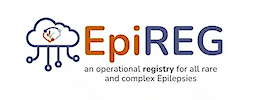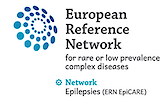Academic Teaching / Continuing Medical Education
The Epileptology Department participates in the academic education of students within various field specialties (medicine, neuroscience, psychology, and physics).
Furthermore, the medical and scientific staff are involved in continuing medical education for specialists as well as advanced medical training.
During the course of the semester, various internationally renowned experts are invited to hold lectures on clinically relevant subjects once a month at the Bonn Epilepsy Seminar.
The Otto-Löwenstein Symposium, which is held yearly, offers medical and scientific colleagues the opportunity to hear lectures from internationally-renowned experts on important subjects within the field of epileptology and to exchange ideas with them. The next symposium is planned for Saturday, November 20, 2021.
Preclinical Study Section
Elective course: "Mind & Brain" (3-day block seminar which always takes place at the start of the summer semester).
Contact: Priv.-Doz. Dr. Christian Hoppe (, Tel.: +49 228 287-16172)
All infomation concerning this meeting can be found in Basis.
Elective course "Sleep & Chronobiology" (4-day block seminar)
Contact: Simone Claß (, Tel.: 0228 287-16916)
All infomation concerning this meeting can be found in and in this Info-Video: https://youtu.be/pQ5exywHH1o
"What can epilepsy contribute towards our understanding of brain function?" (topic 9.1) within the lecture series "Clinical Seminars"
Contact: Prof. Dr. Rainer Surges (, Tel.: +49 228 287-19388)
"The Role of the EEG in Current Clinical Practice", Seminar Physiologie
24.06.2021, 12:15-13:00 Uhr
Contact: Prof. Dr. Rainer Surges (, Tel.: +49 228 287-19388)
Clinical Study Section
Contacts:
- PD Dr. Randi von Wrede (, Tel.: 0228 287-16272)
- Simone Claß (, Tel.: 0228 287-16919)
- Prof. Dr. Rainer Surges (, Tel.: 0228 287-19388)
Contacts for digital learning:
- Simone Claß (, Tel.: 0228 287-16919)
- Prof. Dr. Rainer Surges (, Tel.: 0228 287-19388)
Cirricular courses with participation from the Epileptology Department:
- Lecture - Neurology - Theme: Epilepsy (2 dates/semester)
- Block internship- Neurology - Field: Epileptology (2 days per learning group)
- Elective subject - Epileptology
- Medical training in the Epileptology Department
- Practical training year, tertial in Epileptology
Additional courses for students on the subject human medicine /clinical study section:
- Lecture - Neuropsychology: upon agreement
Contact: Prof. Dr. Christoph Helmstaedter (, Tel.: +49 228 287-16108) - EEG Seminar: Thursdays 12:30 pm (Seminar room, Epileptology/Building 83)
Contact: Dr. Dr. Attila Racz (, Tel.: +49 228 287-15741) - Teaching – Medical Rounds Prof. Dr. Rainer Surges: Thursdays 9 am - 12 pm (Begins in the seminar room, Epileptology/Building 83)
Contact: Prof. Dr. Rainer Surges (, Tel.: +49 228 287-15727) - Epilepsy Surgery - Fall conference (Prof. Dr. Rainer Surges, Prof. Dr. Hartmut Vatter): Wednesdays 4:30 pm (Seminar room Epileptology/Building 83)
Contact: Prof. Dr. Rainer Surges (, Tel.: +49 228 287-15727)
For those with their doctorate (MD, Dr. rer.medic., Dr. rer.nat.), please get in touch with the head of the scientific workgroup from the appropriate clinical field.
Our department is involved in the international degree program, "Neuroscience (M.Sc.)“; the medical and mathematics-natural science faculty is as follows:
- 2. Semester: Elective Subject WPM 6 "Cognitive Neuroscience" (Contact: Priv.-Doz. Dr. Christian Hoppe, , Tel.: +49 228 287-16172)
- 3. Semester: Elective Internship in the field of Neuropsychology (Prof. Helmstaedter), Personalized Digital Health and Telemedicine (Prof. Krüger), Neurophysics (Prof. Lehnertz) as well as Cognitive and Clinical Neurophysiology (Prof. Mormann)
- 4. Semester: Supervision of Master’s degree (normally after completing an elective intership within the appropriate field)
Additional information can be obtained from the head of the appropriate scientific workgroup.
We offer work internships lasting several weeks for students of psychology, respectively neuropsychology (B.Sc. and M.Sc.) .
- You will learn how to independently conduct and analyse the neuropsychological testing of adult epilepsy patients.
- You will also obtain an initial introduction to the neuropsychological assessment of anamneses, tests, and questionnaire data
- Your involvement depends on the capacity of our research projects.
Following a work internship, a supervised thesis (B.Sc., M.Sc.) is often possible
Dissertations in the field of psychology are tied to PhD positions. Unfortunately, no positions are currently available.
We are always looking for student assistants, respectively, scientific assistants.
Contact:
- PD Dr. Christian Hoppe (christian.hoppe@ukbonn.de, Tel.: 0228 287-16172)
Profile of the Subject and the Department of Epileptology
Epileptology holds a special place within the field of “Neurology”; it comprises a large percentage of neurological diseases which are specific, but also important. The profile for the Epileptology Department includes all options for epileptic diagnostic testing and therapy and contains associated scientific work groups for special issues. During the PY tertial, the student has the opportunity to obtain deeper insight in this special field of medicine.
Position of the students
Normally, the student works as a team member on the Foerster ward and is assigned work under an assistant physician there. Additional supervision takes place with one of the Department’s senior physicians as well as within the framework of the medical rounds carried out by the Head of the Department.
Study- and Job Profile of the Student
The primary goal is to convey the basic concepts of diagnostics and epilepsy therapy to the student. This is accomplished by:
- Taking anamneses
- Discussing the patient’s case (under supervision) during patient rounds and with patient presentation
- Becoming acquainted with the evaluation of relevant diagnostic methods such as EEG, MRI, video seizure analysis, suggestive seizure provocation, neuropsychological testing and evaluating immunological findings
- Developing a treatment strategy with antiepileptic drugs, operative therapy, immunological therapy, vagus nerve stimulation, psychotherapy.
As a second step, the patient should become familiar with the other aspects of caring for epilepsy patients:
- The long-term course of various forms of epilepsy
- The social impairments which occur due to the illness (driving fitness, occupational fitness, accident risks, seizure prevention)
- Integrative consultation and support during the course of complex treatment (ergotherapy, social guidance, psychological consultation, mobilization)
- Other complaints beside seizures (depression, impotence/infertility, mnestic-cognitive disturbances)
- Treatment of specific types of epilepsy (myoclonic epilepsy, Lennox-Gastaut syndrome)
Established training modules as part of PY activities
- Presentation and supervision of patients the students have treated, including the preparation of a medical report
- Ward rounds
- MRI demonstration
- Continuing scientific education (1x/week, own contribution 1/tertiary)
Additional, individually-designed learning opportunities
After a consultation, the Department staff here is open to specific discussions regarding the student’s field of work. Aside from this, there is the possibility of viewing the comprehensive video data bank in order to gather experience in the description and classification of seizures (epileptic, syncopal, psychogenic).
We expect that the student will integrate within the Department team. We expect respectful treatment, especially with patients. We expect that at the end of the tertiary, the student is capable of making and justifying a diagnosis. The student should be able to establish a treatment plan, to assess the prognosis of the patient, and to advise the patient with regard to socio-medical issues. Evaluating and interpreting typical findings in additional examinations should be mastered.
Contact:
- PD Dr. Randi von Wrede (, Tel.: 0228 287-15741)
During residency training at the Department of Epileptology, all of the important aspects and compentancies are taught which are vital when caring for individuals with epilepsy and other paroxysmal seizure disorders. Up to two years of training at the Department of Epileptology can be credited towards further training in Neurology (Continuing Medical Education Association of the North Rhine Area).
The contents of the training also qualify residents to obtain additional qualifications of the Deutschen Gesellschaft für Epileptologie (Epileptology Certificate) and the Deutschen Gesellschaft für Klinische Neurophysiologie und funktionelle Bildgebung (EEG Certificate).
In close cooperation with our Department of Neurosurgery (intensive care unit), Department of Neurology, and Department of Psychiatry and Psychosomatics, the other required training components can also be completed.
Professor Dr. Surges, the senior physicians within the Department, as well as the habilitation colleagues from other Departments (Neuropsychology, for example) and scientific fields would be pleased to particiate in continuing medical education presentations, and look forward to receiving an invitation.
If you are interested, please contact the appropriate person directly.
The Department of Epileptology has been organizing the Otto Löwenstein Symposium every year with internationally renowned experts.
The 5th Annual Otto Löwenstein Symposium will take place on Saturday, November 29, 2025. Additional information can be found here soon.
Otto Löwenstein (1889-1965) was a Bonn physician and scientist who, due to his Jewish roots, was forced to emigrate first to Switzerland and then to the United States in the Third Reich. He is considered the co-founder of child and adolescent psychiatry as well as pupillography, but we also owe him a debt of gratitude for his very important contribution to the field of epileptology: the simultaneous film recording of seizures together with the EEG (so-called simultaneous, double-image recording or video EEG monitoring).
Programs and Invited Speakers of Previous Symposia:
- 5. Otto Löwenstein Symposium (2024)
- 4. Otto-Löwenstein-Symposium (2023)
- 3. Otto-Löwenstein-Symposium (2022)
- 2. Otto-Löwenstein-Symposium (2021)
- Otto-Löwenstein-Symposium 2020 (cancelled due to the Corona pandemic)
- 1. Otto-Löwenstein-Symposium (2019)



















